Canadian Business Journal: NACCA Interview
The National Aboriginal Capital Corporations Association (NACCA) was founded 20 years ago as an organization that was borne out of what are known as Aboriginal Financial Institutions (AFI), which were first created in the late 1980s by Aboriginal leaders, the Government of Canada, and a Native Economic Development Program initiative. The primary mandate was to address the lack of available capital to finance Aboriginal small-business development.
AFIs were created to provide repayable, interest-bearing loans to Aboriginal small- and medium-sized enterprises (SMEs) that were unable to secure loans from highly-regulated conventional lenders due to risk tolerance levels.
Several AFIs joined together to form NACCA and retain their autonomy. The purpose of NACCA was to increase the number of Aboriginal entrepreneurs in Canada and provide opportunities for Aboriginal entrepreneurs to be successful.
This is an excerpt from the Canadian Business Journal.


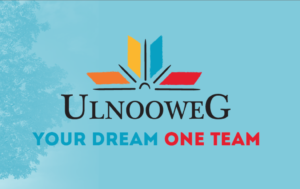 Halifax, NS/June 22, 2017 – BBB Serving the Atlantic Provinces was honoured to present a Torch Award for Business Ethics to the first ever Aboriginal business recipient last week. On Friday, June 23, Truro’s Ulnooweg Development Group received a Torch Award for the 11 to 49 employee category. Torch Awards are given to companies who go above and beyond to give back to their communities and inspire marketplace trust.
Halifax, NS/June 22, 2017 – BBB Serving the Atlantic Provinces was honoured to present a Torch Award for Business Ethics to the first ever Aboriginal business recipient last week. On Friday, June 23, Truro’s Ulnooweg Development Group received a Torch Award for the 11 to 49 employee category. Torch Awards are given to companies who go above and beyond to give back to their communities and inspire marketplace trust.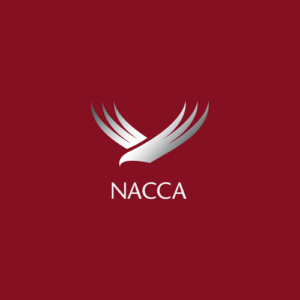 By Shannin Metatawabin
By Shannin Metatawabin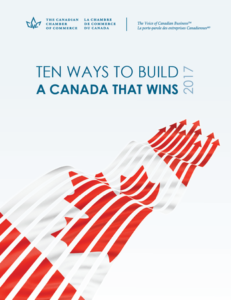 For the last several years, the Canadian Chamber of Commerce has published an annual list of the Top 10 Barriers to Canadian Competitiveness. That document listed some of the self-inflicted wounds that have prevented Canada’s economy from achieving its full potential and set out their recommendations for change.
For the last several years, the Canadian Chamber of Commerce has published an annual list of the Top 10 Barriers to Canadian Competitiveness. That document listed some of the self-inflicted wounds that have prevented Canada’s economy from achieving its full potential and set out their recommendations for change.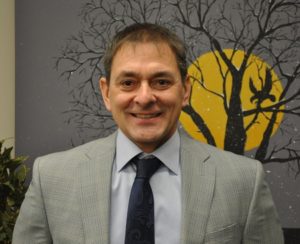 Ottawa, March 23, 2017 – The National Aboriginal Capital Corporations Association (NACCA) is pleased to announce the appointment of Gerry Huebner as Chief Strategy Officer. Gerry graduated from Trent University in 1983 with a Bachelor’s Degree in Business Administration and went on to earn his Master’s Degree in Public Administration from Queens University in 1986.
Ottawa, March 23, 2017 – The National Aboriginal Capital Corporations Association (NACCA) is pleased to announce the appointment of Gerry Huebner as Chief Strategy Officer. Gerry graduated from Trent University in 1983 with a Bachelor’s Degree in Business Administration and went on to earn his Master’s Degree in Public Administration from Queens University in 1986.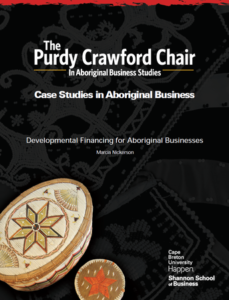 The Purdy Crawford Chair in Aboriginal Business Studies
The Purdy Crawford Chair in Aboriginal Business Studies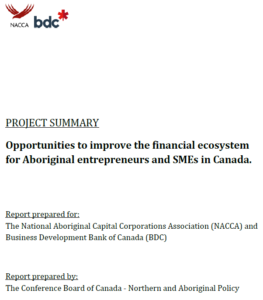 Ottawa, March 7, 2017 – The National Aboriginal Capital Corporations Association (NACCA) and the Business Development Bank of Canada (BDC) commissioned a study of the financial ecosystem that provides support for Aboriginal entrepreneurship in Canada. NACCA and its member Aboriginal Financial Institutions (AFIs) provide financing and support to Aboriginal entrepreneurs. The number of AFIs across Canada has grown to over 50 and include Aboriginal Capital Corporations, Aboriginal Developmental Lenders and Aboriginal Community Futures Development Corporations. In addition to BDC’s mainstream financial services and advice, BDC’s Aboriginal Banking Unit offers two specialized streams of financing for Aboriginal entrepreneurs including the “Aboriginal Business Development Fund,” and “Growth Capital for Aboriginal Business.”
Ottawa, March 7, 2017 – The National Aboriginal Capital Corporations Association (NACCA) and the Business Development Bank of Canada (BDC) commissioned a study of the financial ecosystem that provides support for Aboriginal entrepreneurship in Canada. NACCA and its member Aboriginal Financial Institutions (AFIs) provide financing and support to Aboriginal entrepreneurs. The number of AFIs across Canada has grown to over 50 and include Aboriginal Capital Corporations, Aboriginal Developmental Lenders and Aboriginal Community Futures Development Corporations. In addition to BDC’s mainstream financial services and advice, BDC’s Aboriginal Banking Unit offers two specialized streams of financing for Aboriginal entrepreneurs including the “Aboriginal Business Development Fund,” and “Growth Capital for Aboriginal Business.”